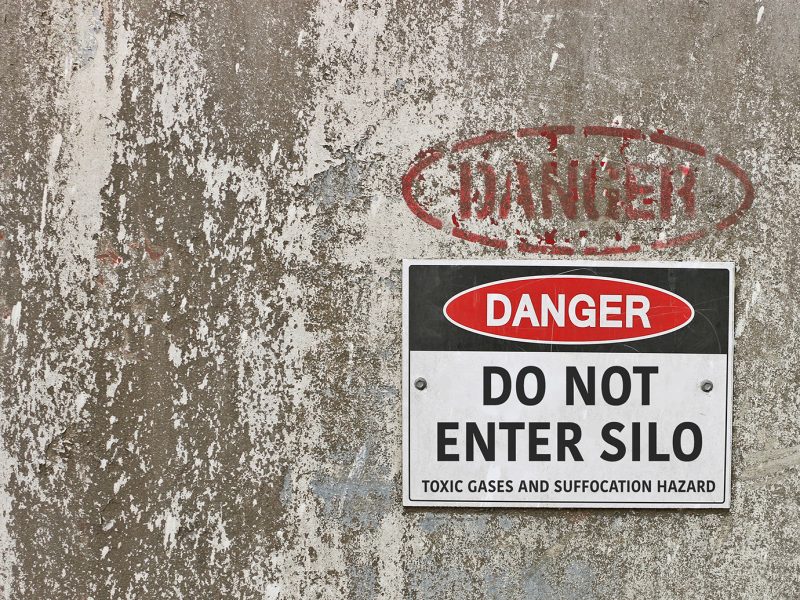This week marks Canadian Agricultural Safety Week, an annual reminder from the Canadian Agricultural Safety Association, that every agricultural sector and operation has unique hazards.
Confined spaces are one example.
“Of all the different hazards that are present in agriculture, I think confined space presents the highest risk to loss of life,” says AgSafe BC executive director Wendy Bennett.
“If you’re not supposed to go in it and you’re not trained by a professional to perform a confined space entry, stay out, full stop, because confined spaces can kill,” she says.
Wineries and mushroom operations have often made headlines on account of the dangerous equipment and gases lurking within their spaces that can result in injury or death.
Last May, Abbotsford’s Delfresh Mushroom Farm Ltd. faced a fine of nearly $5,000 from WorkSafe BC for failing to barricade the access hole for its composter to prevent worker entry.
But confined spaces also include tanks, silos, conveyors and storage bins. Workers must be aware of the confined spaces in their working environments and the associated hazards. These include too little or too much oxygen, toxic gases, explosive atmospheres, biological hazards like bacteria and mould, and entrapment.
“There can be an oxygen-deficient atmosphere, which is often the case, so you don’t realize it, but then you’re overcome and cannot breathe. That quickly leads to unconsciousness,” Bennett says. “Every employer needs to ensure that all their confined spaces are clearly labelled and that every worker and everyone on site is aware of where those confined spaces are.”
Workers who see colleagues in distress while working in a confined space shouldn’t try to perform a rescue operation without the proper training and equipment.
According to WorkSafe BC, 18 workers have lost their lives in confined spaces since 2000 on BC farms. Half of those casualties were rescuers.
Overall, effective communication can help keep farmers and workers safe, says WorkSafe BC manager of prevention programs and services Doug Pasco.
“Employers having that discussion [help],” he says. “Talking to their workers to identify the risks that are present within their operations and then working with them.”
CASW’s three-year campaign of Your Farm, Your Family, Your Success: Safety is our Heritage encourages farmers, farm families, farm workers and farming communities to plan for farm safety every day.


 Apple industry eyes orderly marketing plan
Apple industry eyes orderly marketing plan